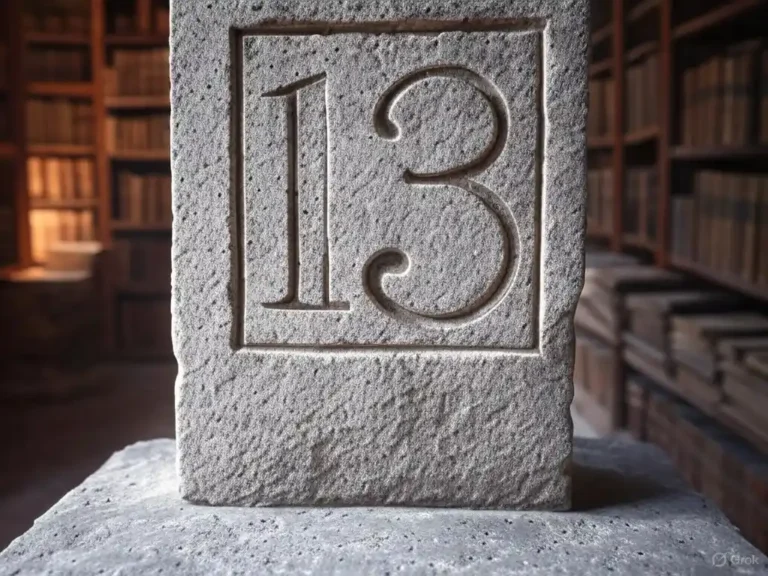Meaning of the Number 10 in the Bible: Divine Completion and Human Responsibility

Throughout Scripture, the number 10 emerges as a powerful symbol—one that bridges divine law with human action. It speaks of order, completeness, and mankind’s accountability in fulfilling God’s will. From the Ten Commandments to the Ten Plagues, the number 10 carries a resonance that echoes spiritual maturity, divine governance, and the fullness of earthly testing.
Biblical Significance of the Number 10
In biblical numerology, the number 10 is often associated with completeness of divine order. It represents the entire cycle of human responsibility governed by spiritual law. When God gave the Ten Commandments to Moses on Mount Sinai, it wasn’t arbitrary. The number 10 was chosen to reflect the wholeness of God’s moral structure—a perfect guide for living in alignment with divine will.
The Ten Commandments (Exodus 20) are a foundational aspect of biblical teaching. They not only shape the faith traditions of Judaism and Christianity but also reflect the structure of many legal systems across cultures. The use of 10 as a framework represents moral fullness—a divine order given to guide human conduct.
The Ten Plagues and Divine Justice
Another significant appearance of the number 10 is in the ten plagues of Egypt (Exodus 7–12). These plagues served as demonstrations of divine power and judgment, challenging Pharaoh’s oppression and proving that God’s authority surpassed all. Here, the number 10 signified a complete and final judgment. It was not partial or random—it was the full outpouring of God’s response to injustice.
The use of 10 in this context reinforces the idea of testing and completion. Just as the commandments outlined righteous behavior, the plagues revealed the consequences of rejecting it.
Tithing: A Spiritual Act of the Tenth
In the Bible, tithing—a sacred act of giving one-tenth of one’s earnings—is another powerful connection to the number 10. This practice, rooted in obedience and gratitude, emphasizes the idea of offering back to God a portion of what He has provided. Tithing symbolizes trust, reverence, and the acknowledgment of divine provision.
Malachi 3:10 speaks directly to the blessings that come from faithful tithing: “Bring the whole tithe into the storehouse… and see if I will not open the floodgates of heaven.” The number 10 here becomes a bridge between faith and abundance.
Symbol of Testing and Responsibility
Ten is also recognized as a number of testing throughout the Bible. In Daniel 1, Daniel and his friends are tested for 10 days on a diet of vegetables and water to prove their faithfulness and resilience. In Revelation 2:10, the church in Smyrna is told it will face 10 days of persecution, representing a period of testing and purification.
These examples illustrate that the number 10 doesn’t only signify order but also the challenge of upholding that order under pressure.
A Token of Symbolic Power
If you’re drawn to the number 10 and its meaning in the Bible, consider keeping a small symbol of it close. Wearing something that reflects this number can serve as a gentle daily reminder of spiritual order, personal growth, and trust in divine timing. It’s a quiet way to stay connected to your faith throughout the day.

Conclusion
In the Bible, the number 10 is far more than a digit—it is a divine marker of responsibility, structure, and fulfillment. Whether through law, judgment, giving, or testing, this number calls us to live with intention and in alignment with God’s will. Understanding its meaning brings clarity to our spiritual walk and reminds us of the sacred order that underlies our journey.
Related Articles You Might Find Helpful
Dive deeper into the symbolic richness of numbers in Scripture:






